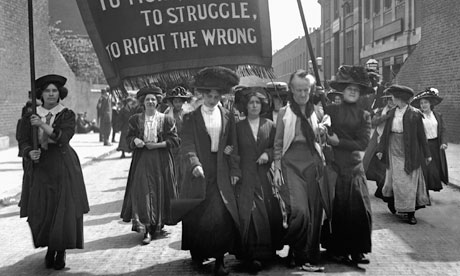
Two years before she threw herself under the king's horse at Epsom, Emily Wilding Davison reviewed a book that, she declared, "breathes the very spirit of our Women's Movement". Republished for the first time in its centenary year, Constance Maud's 1911 novel, No Surrender, is a passionate call to arms issued from the midst of the struggle for female suffrage.
In a northern mill town, Jenny Clegg watches helplessly as her mother's savings are squandered and her sister's children are sent to Australia by cruel and dissolute husbands. A life of drudgery seems inescapable until a chance encounter with a young aristocrat, Mary O'Neil, opens up a world of soapbox oratory and political activism. From ambushes in country churchyards to assaults in the salons of St James's, the campaign against the "Antis" is waged with ingenuity, wit and grim determination: the suffragettes' indomitable spirit undiminished by either the genteel savagery of the gentry or the pragmatic brutality of the working class. Yet their exertions cost them dear, and the summary violence with which they are met is profoundly shocking: at the novel's nightmarish climax, Mary is subjected to a force-feeding that is at once crucifixion and rape, before a fittingly Biblical deluge of female protesters inundates London and sweeps the Antis away.
No Surrender is perhaps primarily valuable as a social document: Maud's lofty intentions are at times hamstrung by her prose style, which is frequently laboured and prone to cliche. What the novel lacks in elegance, however, it makes up for in authenticity. The message that Maud drives home, which remains urgently germane today, is the bitter paradox of the disenfranchised: "If you have no political status and no civil rights, you can't possibly be qualified as a political prisoner, according to law."

